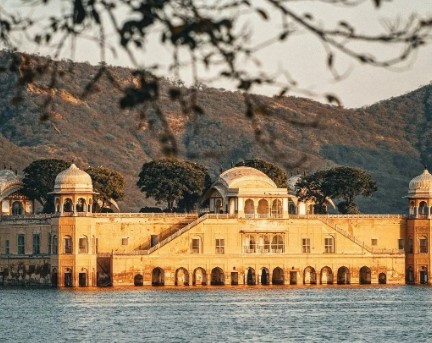Customs and Costumes in Rajasthan
Customs and Costumes in Rajasthan
Rajasthan is richly blended with varied customs and costumes wedded to the traditional and changing patterns of religious beliefs and climatic factors often land systems. Customs of the Rajasthan people are mainly guided by Vedic on Hindu traditions. Even Muslims residing in former princely states and the tribals are widely influenced by Hindu customs and traditions
.
The Mughal
culture too has some influence over the customary behaviour and practices of
the people. Customs in Rajputs, mannerism of Mughals and other traditions, with
the British Rule in India have gone in the background and got extinct. But then
on the contrary side traditions are still perpetuating. The Rajas, Vazirs,
Jagirdas, Jamindars, Bhomias, Purohits,Kamdars are continuing with their odds.
After
independence, the society transformed. Under the forceful impact of western
traditions the old ones getting disappeared slowly. The unsocial evils like
child marriage, sati Pratha, untouchability, dowry, mausar and polygamy have
been banned. Purdah system, grinding of flour, opting services of ladies and
servants have been minimized to a large extent. However, arrangements of feasts
on the birth of a baby, marriage, athwa, grah-pravesh have been a status symbol.
Namakaran
(naming the child) and Nangal (inauguration of the newly-built house) are
performed as sacred rites. The birth of a new child is followed by the
custom of well worship. Probably, this worship is peculiar to Rajasthan because
drinking water is scarce here. Addiction to opium and alcoholic beverages
are another social evils in certain castes in the state. They drink liquor and
use opium on festive occasions. It is matter of pitty that the young generation
has chosen the path to absorb a good amount of liquors injurious to health and
socially and economically adversing the society.
Government,
social agencies and the individuals will have to look into this matter as a
social reform. Ladies express their joyful happiness in dance, music, folk
dance, folklores, songs, etc. on the occasions of marriage, Gauna (first
arrival of bride-groom after marriage to his father-in law's house), child birth,
departure for pilgrimage and the like. The famous dance of 'Kathank' (Jaipur), ‘KachiGhori’ (Jodhpur),
“Terah Taali' (Rajasthan), Gher,Ghumar, Neja (Nagaur) 'Fire Dance' (Desert) are
related to Holi, Teej and Gangaur festivals are other festivals which are
celebrated during rainy season.
Tribal
ladies to 'Garba' Ghumar, Balar, Jhuma.Dandia, Gher in Aravalli region and
offer their jubilance. The family life is characterised by joint family system,
respect for elders, particular-position and role of woman mainly confirmed to
household duties, observance of purdah system by women, early marriages and
dowry system. Marriages are generally performed in traditional style.
In some
lower castes and communities, widow remarriage and polygamy are prohibited.
Child marriages are also prevalent but now people have started thinking not to
perform the marriages of their Childs until they became majority barring some
lower castes and communities widows remarriage and polygamy are prohibited.
Adoption of male child by issueless parents is a widely accepted custom. The
custom of allowing a married women or a widow to live with another man as his
wife, without observing any formalities, is also prevalent among The worship of
gods and goddesses, yajnas and group songs generally accompany all rites and
ceremonies from birth to death.
Customs
in Rajasthan
Besides
sixteen Sankaras prescribed by the hindu dharamsastra, there are other customs
and tradition observed in Rajasthan follow as under:
Atthu
Pujan : This custom is observed at the first
conception of a child one month before the
delivery.
Beating
the Thali : Thali beaten is to make others to
know about the birth of a male child. Keeping the swords or Katar inside the room
where the male child is born. This is an age old custom which observed so that
martial qualities may develop in a child.
Akhya
: On the eighth day after the birth of
a male child, sisters and daughters are invited to paint the Swastiks in the
house.
Kunwa
Poojan: Some
certain ceremonies and rites on the well are performed by the mother of the male
child.
Namakaran
Ceremony : Naming the child ceremony is attended
by a Pandit astrologer and the other relatives and friends of the family.
Mundan
or Zadula Ceremony : It is observed
when the hairs of a male child are cut for the first time before some god or
goddess.
Janeu
Pratha or Yajyopavitra Sanskar : This
is a thread ceremony. It is generally observed by the Brahmans which the male
child is endowed with athread called Janeu with some mantras.
Sagai
or Engagement:
It is observed when it is decided that a particular female or male would marry
a particular male or female.
Lagan
Patrika : It is a custom to convey the fixed
date of the marriage by a letter called lagan patrika.
Kangan
Dorda : In this custom, the threads are tied
to the bride and bridegroom before marriage and are removed after the marriage.
Samela
: By this ceremony, the information of
the arrival of the members of the marriage party along with the bridegroom is
conveyed to the father of the bride.
Toran: When the bridegroom arrives at the house
of bride, he touches the Toran with a branch of Neem to indicate that he has
won over the bride.
Bari-Parla
: The clothes & ornaments of the
bride are prepared by the bridegroom's parents, the same is called Bari-Parla.
Phera
: It is marriage ceremony which is
performed according to the vedic rites. Both bride and bridegroom walk seven
round around the fire thereafter, they became husband and wife.
Pahravni
: At the time of departure of marriage
party, the parents of the bride according to their capability gives gift to
bride and bridegroom and every member of the marriage party. This ceremony is
called Pahravani or Rangbury.
Gauna
: If bride is major at the time of her
marriage this ceremony is done at the same time otherwise it is observed when
bride becomes major and thereafter, husband takes his wife to his home to start
his normal life as husband and wife.
Nata : This custom prevails in the tribes and backward castes
according to which a married lady can remarry another man while her husband is
alive.
Nangal
or Grah Pravesh : After the complete construction of
the new house, a feast is given by the owner of the house just to seek the
blessings from the elders and good wishes from the friends and relatives.
Mosar
: The death feast called Mosar or Nuktais
almost an essential ritual among the Rajasthani's. Large number of relatives,
friends and neighbours of the deceased are invited to these collective feasts.
Shradh
: The Brahmans are served with meals
and offerings annually on the dates on which persons had died.
Pagri: On the eve of Mausar, the pagri is
tied to the eldest male member of the family. But first pagri belongs to family
of the deceased person. Thereafter, other pagris of the cousins and relatives
are tied. There were the customs of Sati Pratha, Jauhar, infanticides also
which are now dead. Prada Pratha or covering the face with a veil is in
existence before-her elders but in modern families, it is now completely gone.
Thankyou
comment your queries below.










0 Comments